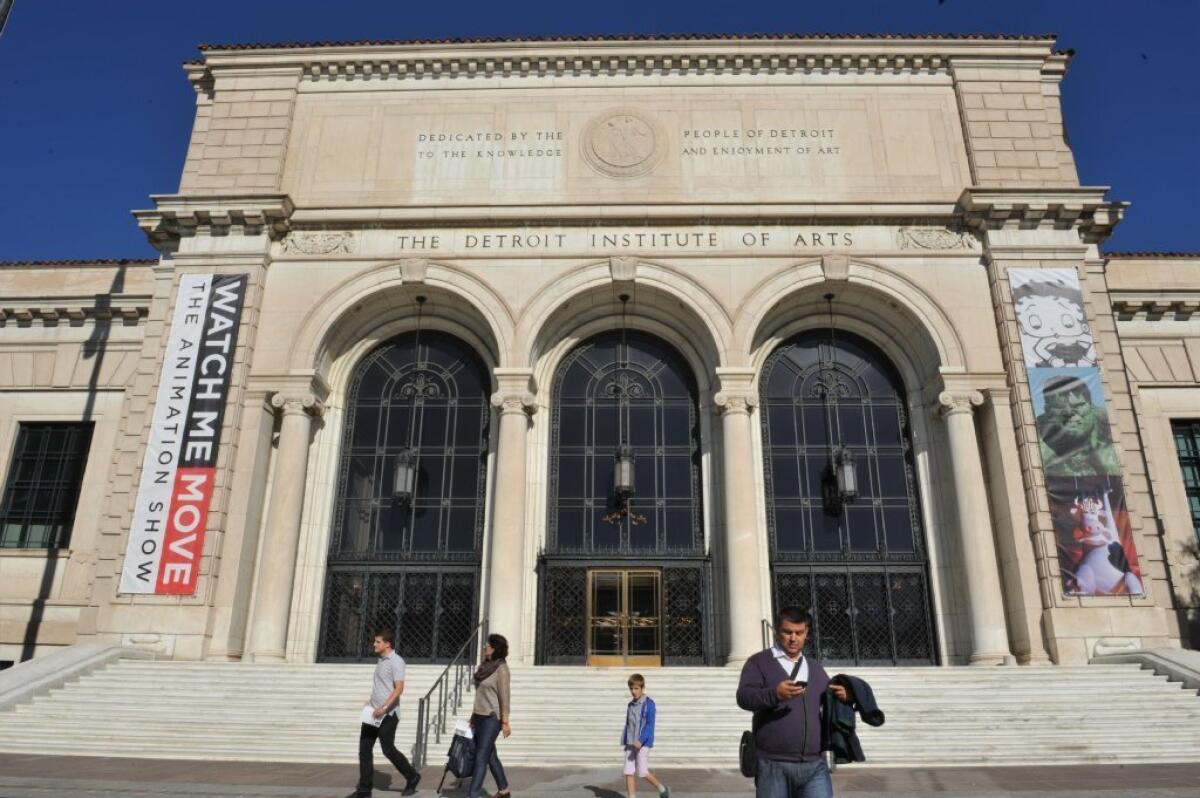Detroit’s creditors press city to sell artworks in its museum

Creditors of the city of Detroit are applying pressure on local leaders to sell off valuable pieces at the Detroit Institute of Arts as part of the city’s bankruptcy proceedings.
In recently filed court papers, a group of creditors -- including a number of European and American financial institutions -- asks the city to cooperate in assessing the value of art that belongs to the museum. The filing was first reported by the Detroit Free Press.
City leaders are being asked to demonstrate that they are undertaking a valuation of the art in the museum and that their recovery plan “maximizes the value of the art.” The creditors say they have been given no specific information about the city’s move to have Christie’s, the auction house, appraise the collection.
ART: Can you guess the high price?
Christie’s had been expected to complete its valuation this fall, but the proceedings have been postponed.
In their filing, the creditors say they hope a collaborative process will allow for a wide range of options to “monetize the art” and to preserve the museum as “a culturally relevant institution.”
The plan to sell work from the institute has been met with widespread criticism from leaders in the museum world who view the collection as a public trust. The potential sale was even addressed in an October segment on CBS’ “60 Minutes” that profiled the city’s financial problems.
Detroit faces more than $18 billion in debt. The institute is considered to be one of the preeminent art museums in the country, with a permanent collection of 60,000 objects dating from the Renaissance to the 20th century.
ALSO:
Sale of Detroit Institute art debated in light of city’s bankruptcy
Detroit debates if museum’s art can be sold to pay off city debts
New York museum returns to good graces after ban for selling art to pay bills
More to Read
The biggest entertainment stories
Get our big stories about Hollywood, film, television, music, arts, culture and more right in your inbox as soon as they publish.
You may occasionally receive promotional content from the Los Angeles Times.










